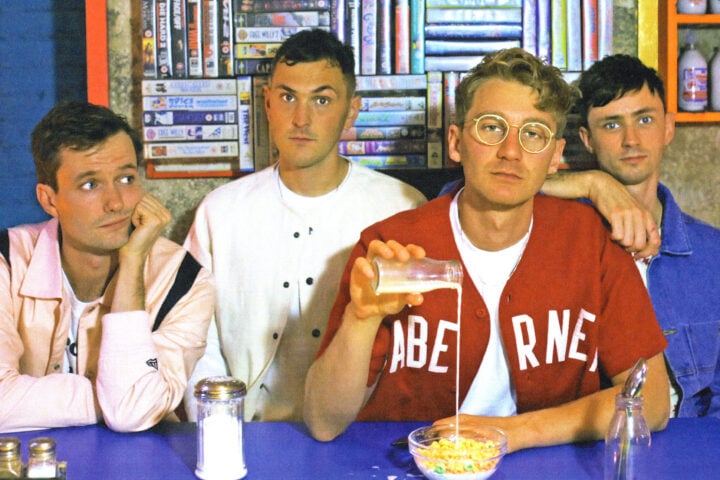Maggie Rogers’s music has always felt independent of pop trends, and the singer-songwriter’s third studio album, Don’t Forget Me, likewise sounds unlike anything else being released at the moment. The album’s 10 brisk, lightly rocking songs evoke the radio-friendly pop-rock of early-2000s Sheryl Crow or Jewel while sometimes, as on the title track, looking further back to ’70s soft rock a la Carole King.
Written across the course of just five days, and consisting mostly of first-take recordings, Don’t Forget Me boasts a certain off-the-cuff charm, a first-thought-best-thought quality emblematic of an increasingly confident songwriter. “So Sick of Dreaming,” a swaying indie-pop tune filled with barbs directed at Rogers’s ex for ditching her to go to a ballgame, embodies the album’s carefree ethos. “And by the way, the Knicks lost,” she quips.
The songs on Don’t Forget Me are diaristic but rarely confessional. Rogers seems deliberately vague in the details she chooses to reveal: “And I know that you still hate him/The way he hurt you back at school,” Rogers sings on “It Was Coming All Along,” without ever telling us who “he” is or what he did. These songs are the singer’s most vibe-driven, aesthetic-focused to date; she’s far happier to zoom outward and rely on melody and mood to create a cohesive sound.
Rogers says that she wanted to make an album you could “belt at full volume alone in your car,” and, fittingly, she frequently sounds like she’s looking back at her past in the rear-view mirror. Only select memories remain and the immediacy of the pain has faded, replaced with a feeling of triumph, even euphoria. Much of Don’t Forget Me captures the freedom of hitting the open road and the dizziness of moving on: “Time is up/You’ve had your fun/Oh, but it’s so loud,” Rogers sings on “Drunk,” an apt metaphor for that bittersweet moment in which you trade youthful hedonism for stability and security.
Given Rogers’s tendency to paint in broad strokes, it’s all the more illuminating when she chooses to home in on intimate details. “Remember the days we used to drive upstate/Singing indie-rock songs in the car,” she laments on “The Kill,” a brief sketch of bliss that’s contrasted later with a relationship in tatters. On “If Now Was Then,” the past proves too powerful not to revisit: “Holding hands and walking right down 15th street/The wind was in my hair and you had that red flush in your cheeks.” It’s an evocative couplet that serves as a reminder that the path from our past to the future is rarely a linear one.
If Don’t Forget Me begins with the heady excitement and boundless possibility of the open road, by the end the wheels have stopped turning and Rogers makes clear that you can never outrun yourself. On the closing title track, having admitted that the chance of her finding a fairy-tale soulmate is remote, she pines for “something I can handle” and “someone that’s nice to me.” Rogers repeats the titular phrase, “Don’t forget me,” over and over. Maybe it’s an impossible ask, but knowing that rarely stops us from doing so.
Since 2001, we've brought you uncompromising, candid takes on the world of film, music, television, video games, theater, and more. Independently owned and operated publications like Slant have been hit hard in recent years, but we’re committed to keeping our content free and accessible—meaning no paywalls or fees.
If you like what we do, please consider subscribing to our Patreon or making a donation.



